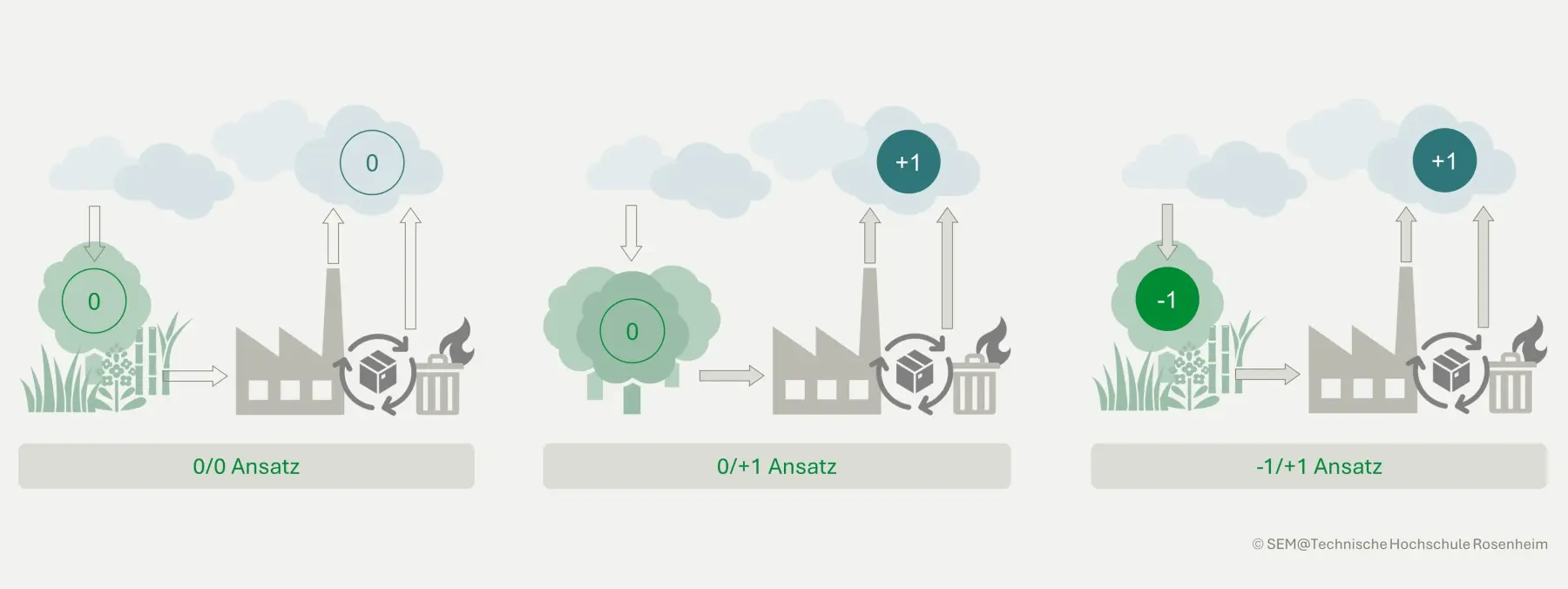The challenges of life cycle assessment
Challenges in life cycle assessment in the evaluation of bio-based products
Different approaches are defined in the norms and standards, particularly for the assessment of biogenic carbon (C). The 0/0 approach, 0/+1 approach or the -1/+1 approach are used to describe whether biogenic C is taken into account in the LCA. With the 0/0 approach, biogenic C is not taken into account. The 0/+1 approach is used for non-renewable biomass, such as wood from rainforests. Due to the long growth phases, the uptake of biogenic C into the biomass is not taken into account (0), but the input of additional C into the atmosphere, e.g. during combustion, is assessed (+1). In the 1/+1 approach, both the uptake and storage of biogenic C (-1) and the release or emission into the atmosphere (+1) are taken into account and assessed.

In addition to the various approaches for considering biogenic C in the LCA, a distinction is also made between static, dynamic and intermediate assessment methods. The main difference between these methods is the consideration of temporal aspects: Temporal effects are neglected and all emissions are aggregated into a single emission at time t = 0 in the time horizon (TH) under consideration (static); the exact temporal emission profile over the life cycle is modelled (dynamic); or temporal aspects are only partially considered (intermediate).
The majority of norms and standards refer to static methods, as dynamic and intermediate methods are not yet well established and represent a significant additional effort in the preparation of the LCA. As static methods neglect temporal effects, it is not possible to assess the benefits resulting from the temporary storage of biogenic C in raw materials or products. Alternatively or in addition, some norms and standards provide guidance on various methods for calculating credits.
Footnotes
Content created by the Sustainable Engineering & Management (SEM) research group at Rosenheim University of Applied Sciences (TH Rosenheim)